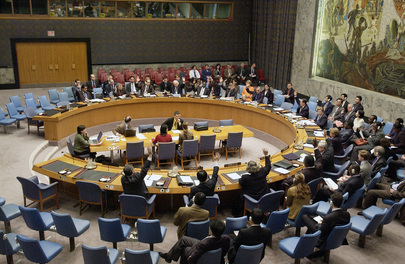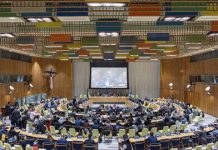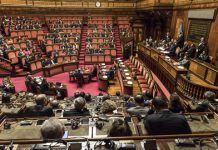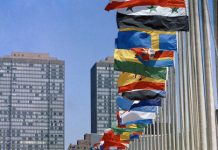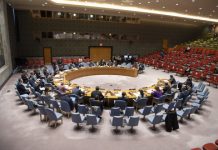Sudan’s Kordofan region in grip of increasing killings and destruction, warns UN rights chief Türk
Amid an alarming escalation of the Sudan war, the UN’s human rights chief, Volker Türk, warned on Wednesday that there’s been no let-up in the killing of civilians.
His comments come after paramilitary forces stormed the city of El Fasher, capital of North Darfur at the end of last month, after a 500-day siege.
Mr. Türk, who was addressing the French Senate, said that his office continues to receive alarming reports that the Rapid Support Forces “are carrying out atrocity crimes, including summary executions, sexual violence and other violations” in the city and elsewhere.
He said that in the Kordofan region there were “clear preparations for intensified hostilities as killings and destruction increase”.
The High Commissioner for Human Rights also urged all countries to respect the Security Council’s arms embargo in Darfur, which should be extended to the entire country; he said.
Civilian protection, full humanitarian access and a return to civilian rule are the top priorities, Mr. Türk insisted.
A special session of the Human Rights Council on the crisis in Sudan takes place on Friday in Geneva.
Gaza: UN aid teams report fuel boost despite delivery obstacles
To Gaza, where in less than a week, at least 600,000 litres of desperately needed diesel has reached the shattered enclave, UN aid coordinators OCHA said in an update.
The fuel is needed to power machinery for critical operations, including water, sanitation, hygiene, health and clearing rubble.
Education, nutrition and protection work will also be possible thanks to the diesel delivery, OCHA said, noting that three-quarters of the total amount went to the south and one quarter headed north.
Latest UN data also indicates that since the start of the month, UN partners have provided food assistance to more than a quarter of a million people, distributing two food parcels per household.
But one month since the ceasefire began, the UN World Food Programme (WFP) said that families in Gaza are struggling to rebuild their lives.
The agency cited the case of Omar, an engineer and father of two, who described the difficulty of finding and paying for food in the enclave, because there is so little physical cash around, after more than two years of war.
“Rebuilding people is harder than rebuilding buildings,” Omar said in a video message posted by WFP. “But restoring lives after two years of emptiness, after seeing my children out of school; as a father, I don’t know how to cope,” he added.
Mountain vipers and Galapagos iguanas in rare company at key wildlife talks
The international bid to protect the world’s most unique and exotic animals and plants from illegal traders, overexploitation and extinction is set to get underway at UN-partnered biodiversity talks in Uzbekistan.
Ethiopian mountain vipers, Brazil’s Pernambuco tree – which is used to make violin bows – and Galapagos iguanas are just three of the more than 30 species that could be given special protection under the Convention on International Trade in Endangered Species of Wild Fauna and Flora (CITES).
In all, the accord covers international trade in more than 40,000 species of wild animals and plants. States parties to CITES can add more species by submitting proposals which are considered at meetings held every three years.
With more on the conference in Samarkand that begins at the end of this month, here’s CITES Secretary-General, Ivonne Higuero:
“The final proposals include three antelope species, two rhino species, hyenas, seals, moths and the Golden-bellied mangabey. Other final proposals include elephants, hornbills, vultures, peregrine falcon, galley, Galli wasp, wasps, geckos, snakes, tortoises, frogs and tarantulas. Proposals on aquatic species, which have been increasing more and more under CITES include sharks, manta rays, guitar fishes, eels, sea cucumbers and abalone.”
It’s been 50 years since the CITES convention entered into force.
It has been behind conservation success stories including the South American vicuña – a small camel – and the Nile crocodile.
Their survival was assured when CITES supported national efforts to turn their wool and skins respectively into valuable and sustainably managed commodities that benefit local communities.
Daniel Johnson, UN News.
Source of original article: United Nations (news.un.org). Photo credit: UN. The content of this article does not necessarily reflect the views or opinion of Global Diaspora News (www.globaldiasporanews.com).
To submit your press release: (https://www.globaldiasporanews.com/pr).
To advertise on Global Diaspora News: (www.globaldiasporanews.com/ads).
Sign up to Global Diaspora News newsletter (https://www.globaldiasporanews.com/newsletter/) to start receiving updates and opportunities directly in your email inbox for free.


